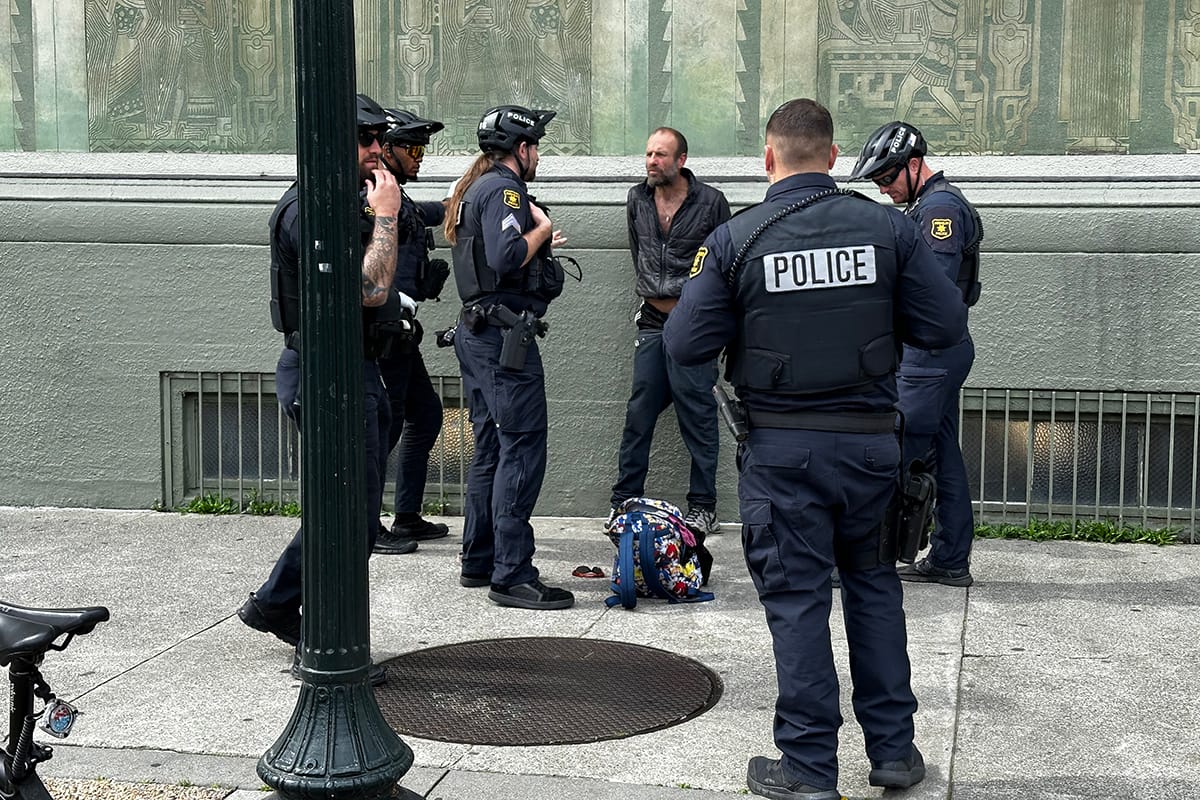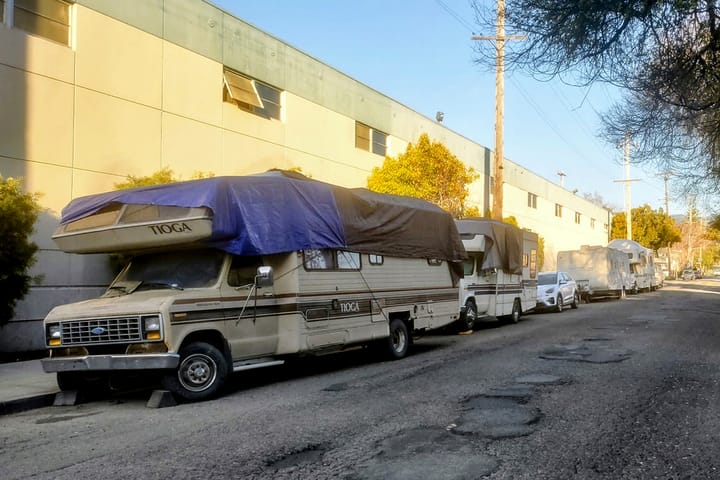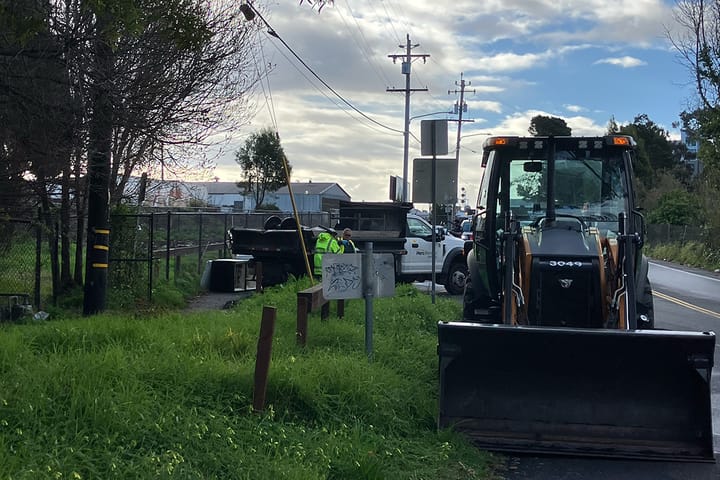Mentally ill, homeless, arrested in Berkeley? New program to offer treatment over jail
CareBridge "is a post-arrest diversion and reentry initiative for individuals experiencing homelessness and behavioral health needs."

Thanks to a new state grant, Berkeley is launching an ambitious "post-arrest diversion pathway" to serve unhoused individuals and others with mental health and substance use needs.
The $8 million "no-match grant," with funding spread over three years, will have "no impact on the City’s General Fund," according to a recent staff report.
The Berkeley City Council voted unanimously Tuesday night to accept the money as part of its consent calendar.
The bulk of the grant, more than $6 million, will be set aside for "transitional housing, case management, and peer navigation services," with the balance paying for project management, program evaluation, daily meals and other costs.
The new CareBridge program, conceived through a collaboration between the Berkeley city manager's office and Health, Housing, and Community Services, along with Berkeley police and others, is expected to launch in the new year and serve 60-80 people annually.
"While there is no one-size-fits-all solution to homelessness or recidivism, we know that stable housing paired with supportive services is critical to helping people get on the path toward healthier, more stable lives," Mayor Adena Ishii said Tuesday night. "We can help break the cycle of homelessness and recidivism while making our community safer for everyone."
The program "aims to fill longstanding gaps in housing, treatment, and reentry support for justice-involved individuals experiencing homelessness and behavioral health needs" who are arrested for low-level offenses in Berkeley, according to program materials.
The "critical post-arrest diversion and reentry program … addresses the root causes of justice involvement among unhoused individuals."
Following a "three-month startup phase," the city plans to pair a "six-month transitional housing model" with "comprehensive wraparound services," such as case management, behavioral health and drug treatment, and links to housing and job services along with civil legal support.
CareBridge "is designed to address systemic gaps between arrest, behavioral health care, and housing access – offering a treatment-based alternative to recidivism," the city wrote.
The money for Berkeley's new initiative comes from a state program "to support treatment-based alternatives to incarceration" as part of Proposition 47, which voters passed in 2014 to make more room in jails and prisons for "dangerous crimes" and reclassify other crimes, including many theft and drug possession offenses, as misdemeanors.
Carianna Arredondo, who coordinates the city's Reimagining Public Safety work through the city manager's office, applied for the grant earlier this year.
In recent weeks, the city got word that it had received the money, one of just 11 proposals from around the state to receive similar allocations.
Other large local proposals came from San Francisco's public health department as well as the city of Stockton.
Eleven jurisdictions won smaller amounts and Los Angeles County, which received special dispensation to seek more money, secured $20 million.

Mayor: "Berkeley is leveraging every resource available"
On Tuesday night, Berkeley City Council members and the public alike expressed their excitement about the influx of cash and the work Arredondo had done to get it.
"As a city, when we're thinking about addressing our crisis with respect to homelessness, this is an important program," said Berkeley Hills Councilman Brent Blackaby. "This funding will be well utilized to help us go at some of the root causes."
"While being unhoused is not the criteria for this program, we know that individuals who are in and out of the justice system often find themselves homeless or in unstable housing," Mayor Adena Ishii said. "Berkeley is leveraging every resource available to provide support to people in their journey towards safety, stability and security in their lives. And I think we should really be celebrating that."
"Of all the items on the agenda, this is the one I'm most proud of tonight," city manager Paul Buddenhagen told officials and the public.
He explained that Tuesday was the first of a two-step process, and said staff would return later with the hotel and program operator contracts for approval.
"The state recommended that we accept these grant funds as quickly as possible," he said.
Buddenhagen described CareBridge as "an attempt to help people who have substance abuse and/or mental health issues and get arrested … go into a hotel and go into treatment" rather than jail.
"And it's a program focused on people who are here in Berkeley," he said.
According to Tuesday's staff report, there is a chance the state could cancel the funding down the road if the grant program, which is "funded by the annual transfer of savings generated by Proposition 47," runs short of cash.
The state would alert Berkeley on or before July 31 of each year so it had time to seek funding elsewhere if that were to happen, the city wrote.





